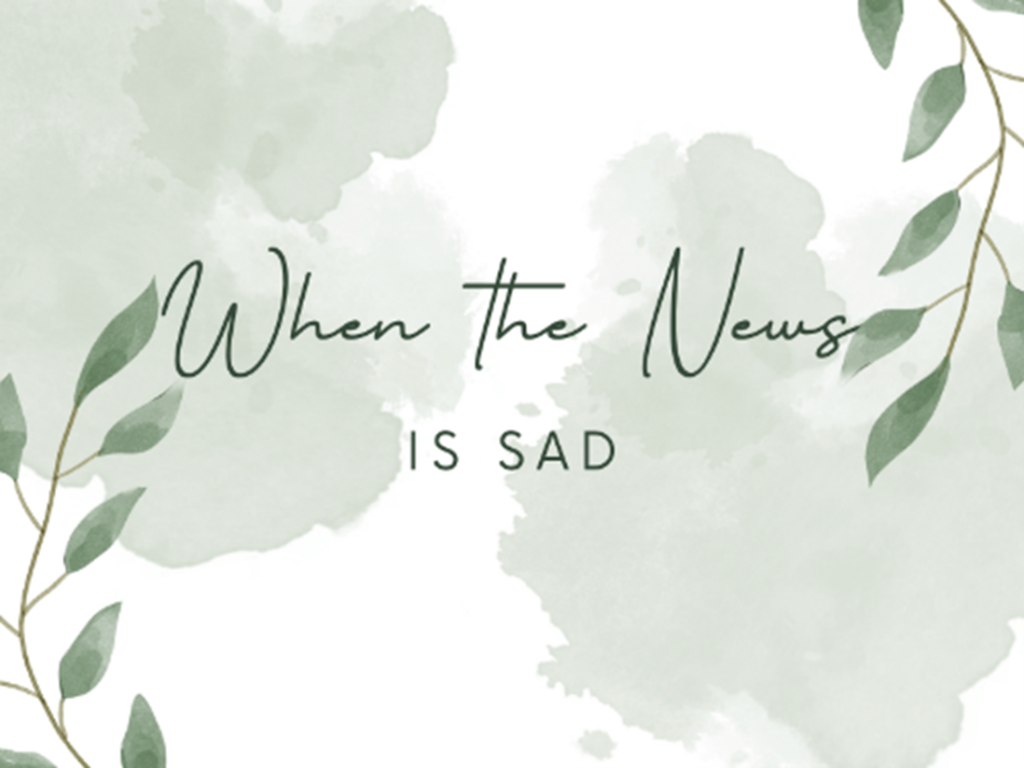by Adapt Training and Development

Last year near the start of the war in Ukraine, we shared a message about how to keep our balance when the news is sad. With the massive suffering and loss of life among Israelis and Palestinians in recent days, we thought it might be helpful to share this message again.
In 2022, we shared a link to this article from CNN Health on why the news is making us anxious—the idea of “low emotional reserves” rings as true today as it did then. We are still reeling from the COVID shutdowns and losses of the past three years, and news of a resurgence is raising concerns. Natural disasters including summer wildfires, and a politically divided country, add to our own individual troubles and woes. It’s hard to make room for more suffering without drowning in it.
It seems that we can all benefit from a reminder of a few self-care ideas we can use to help bring balance to our lives.
- Consider how much news consumption is right for you. The 24-hour news cycle gives us unprecedented access to information (and images) but can also overwhelm us. Remember, we can be caring without totally immersing ourselves in every update. My “set point” might be more or less than yours and that is okay.
- An early pandemic article on CalmMoment suggests these steps:
- Acknowledge the feelings that are coming up.
- Pause and just allow yourself to sit with the feelings for a minute without fighting them.
- Pull back / let go of all that is out of your control.
- Explore mindfulness by really settling into the present moment: Your breathing–what you see, what you hear, what you smell, and so on. By “grounding” ourselves we can help keep our worries or our sadness from getting too big. If you have time and like yoga, this 30 minute video on “Breathing Through Challenging Times” (from Vista Wellness Center) might be something to try.
- Look for ways to take action. Maybe you want to reach out to friends or family members who have loved ones in that part of the world and see how they’re doing. Maybe you can make a donation to a humanitarian organization. Maybe you are a person who practices prayer to support and uplift others. No effort, no matter how small, is wasted.
- Listen to this podcast on “The Science of Suffering” from Clearly Clinical (2021). The interview aims to help us “understand the human experience of suffering and how it shapes us, as well as how we can manage when we’re in the throes of grief.”